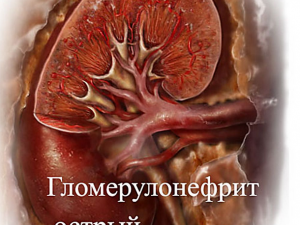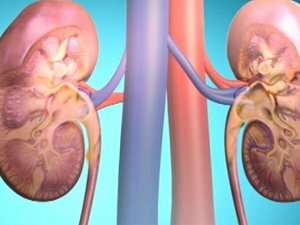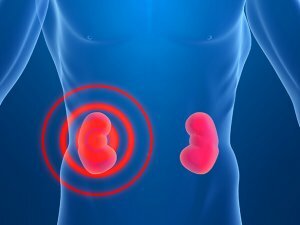Glomerulonephritis
 Glomerulonephritis is one of the types of glomerular kidney disease, expressed in that the kidney filters( so-called glomeruli consisting of tiny blood vessels) become inflamed and gradually lose their ability to remove waste and excess fluid from the blood and urine. Types of glomerulonephritis include renal disease of diabetes mellitus, nephropathy and nephritis.
Glomerulonephritis is one of the types of glomerular kidney disease, expressed in that the kidney filters( so-called glomeruli consisting of tiny blood vessels) become inflamed and gradually lose their ability to remove waste and excess fluid from the blood and urine. Types of glomerulonephritis include renal disease of diabetes mellitus, nephropathy and nephritis.
Acute glomerulonephritis( AGN) is an active inflammation in the glomeruli. Each kidney consists of about 1 million microscopic filters, known as glomeruli, which selectively remove uremic waste. The inflammatory process usually begins with infection or trauma( for example, burn, trauma).If a protective immune system fights an infection, the inflammatory process may be suspended.
 There are many diseases that cause active inflammation in the glomeruli with a subsequent impairment of kidney function. Some of these diseases are systemic( that is, when other organs are involved in the disease process simultaneously), and some are found only in the glomeruli. In the presence of an active inflammatory process in the kidneys, scar tissue can replace normal, functional kidney tissue and cause irreversible impairment of kidney function.
There are many diseases that cause active inflammation in the glomeruli with a subsequent impairment of kidney function. Some of these diseases are systemic( that is, when other organs are involved in the disease process simultaneously), and some are found only in the glomeruli. In the presence of an active inflammatory process in the kidneys, scar tissue can replace normal, functional kidney tissue and cause irreversible impairment of kidney function.
The severity and degree of damage to the glomeruli determines the manifestation of the disease. Acute glomerulonephritis can cause subacute renal failure, progression of chronic renal failure or an abnormal urinary duct, such as hematuria( blood in the urine) or proteinuria( excess protein in the urine).
Symptoms of glomerulonephritis
 Impaired renal function may occur even before the symptoms of the disease appear. The most common symptoms of glomerulonephritis are fatigue, high blood pressure, edema of the face, hands, feet and abdomen, blood and protein in the urine. However, each person can experience symptoms in different ways.
Impaired renal function may occur even before the symptoms of the disease appear. The most common symptoms of glomerulonephritis are fatigue, high blood pressure, edema of the face, hands, feet and abdomen, blood and protein in the urine. However, each person can experience symptoms in different ways.
For an accurate diagnosis it is necessary to consult your doctor.
Diagnosis of glomerulonephritis
In practice, glomerulonephritis manifests itself in changes in the urine, mainly the presence of red blood cells, called hematuria.
Diagnosis of the disease is based on clinical and laboratory data. Changes in blood and urine already indicates a violation of the kidneys.
A significant value in the diagnosis of the disease has an ultrasound examination of the patient's kidneys, with the help of which an increase in the size of the affected organ and diffuse tissue changes can be detected.
It should be noted that the main reliable method for diagnosing glomerulonephritis is a kidney biopsy.
Treatment of glomerulonephritis
 Acute glomerulonephritis and its treatment are determined by a specialist in a medical institution based on the patient's age, general health and medical history, and the extent of the disease.
Acute glomerulonephritis and its treatment are determined by a specialist in a medical institution based on the patient's age, general health and medical history, and the extent of the disease.
Unfortunately, even with modern methods of medicine, kidney disease is not always curable. Treatment can be focused on slowing the progression of the disease and preventing complications.
Treatment of glomerulonephritis can include medical therapy, diet( including protein restriction to reduce accumulation of waste in blood, sodium and potassium), dialysis treatment to remove waste and additional fluid from the blood after the kidneys have ceased to function, kidney transplantation.
Hospitalization of the patient is the first and necessary step in the treatment of acute glomerulonephritis.
Homeopathic remedies
Homeopathy treats a person as a whole. This means that homeopathic treatment focuses on the patient's pathological state. Homeopathic medicines are selected after complete individualization, which includes the results of laboratory studies, the patient's medical history, physical and mental condition, miasmatic tendencies( predisposition / sensitivity).None of the homeopathic medicines should be taken without professional advice.



